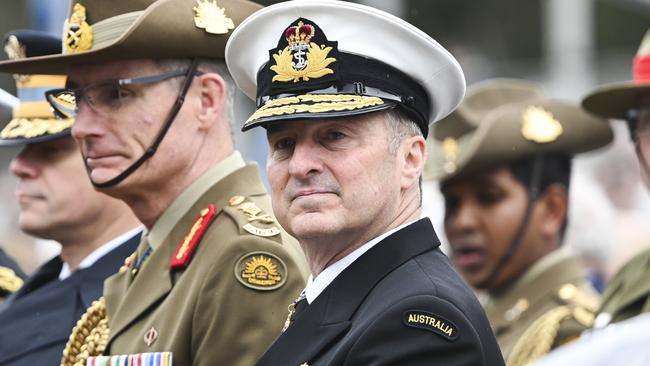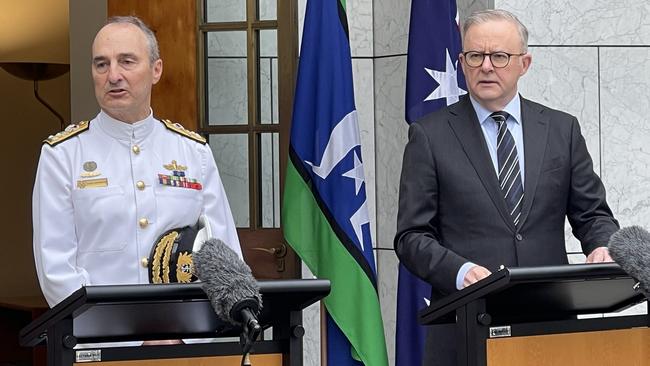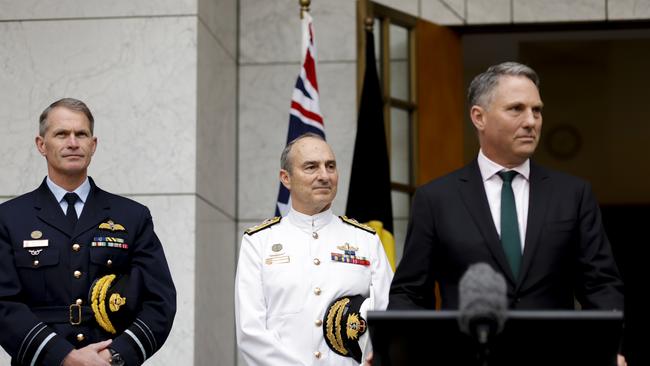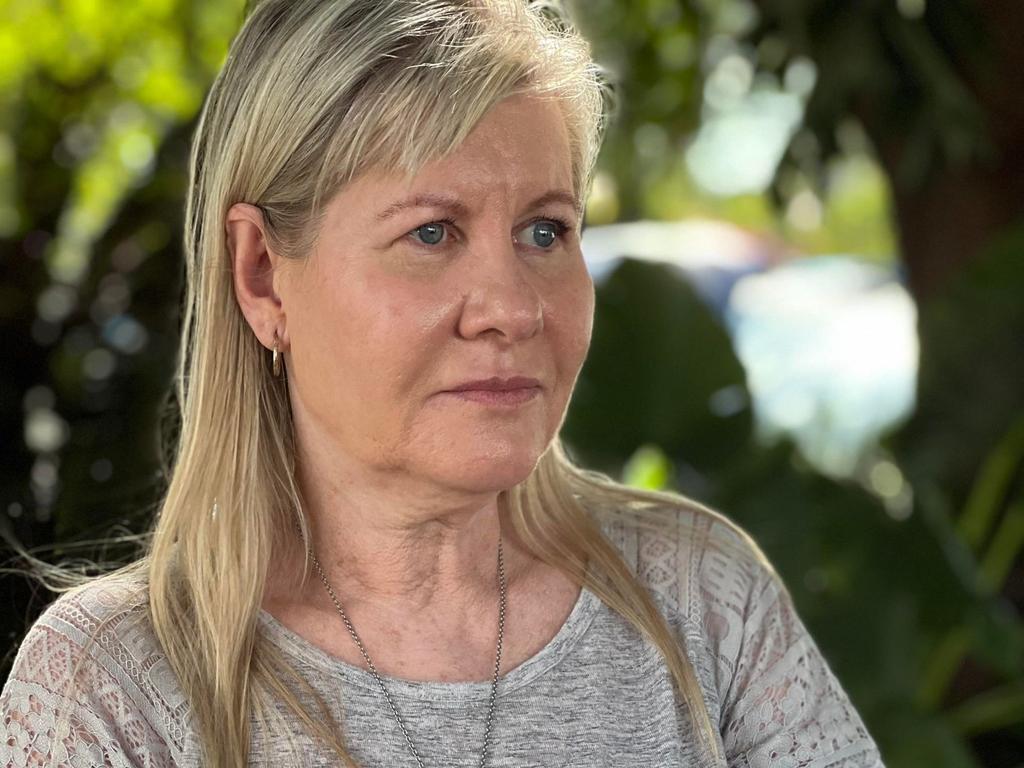Vice Admiral David Johnston’s status quo promotion ADF chief is a bad mistake from Anthony Albanese


The government has made a mistake in promoting Vice Admiral David Johnston to be Chief of the Australian Defence Force.
Johnston is a patriotic and distinguished Australian who has given his life to the military.
He is still a bad appointment because, as the incumbent Vice Chief of the Defence Force, he is the status quo candidate, the continuity candidate.
A better appointment, because it would have signalled at least the possibility of change, would have been Chief of Navy Vice Admiral Mark Hammond.
The Albanese government, and especially Defence Minister Richard Marles, can’t have it both ways. They can’t tell us one minute that there are endemic cultural problems in the entire Defence establishment – civilian and military – and that this has led to wasted money, horrendous delays in projects and a gravely sub-optimal performance, and then go ahead and reward, promote and shower praise on everyone who has overseen that culture over the past decade.
Marles’s first big mistake in Defence was to reappoint Angus Campbell as chief and Greg Moriarty as secretary of the Defence Department. If you claim you’re going to do things differently, create a new culture, change the Defence Force structure and above all respond urgently to the most dangerous strategic circumstances (in the government’s own estimation) the nation’s faced since World War II, you don’t do that by reappointing and promoting all the long-term, existing leadership.

Back then, Marles claimed all the problems with Defence came from the Morrison government. Now that Marles has been minister for two years, and nothing of any consequence has been produced in Defence beyond a super industrial conveyor belt of reviews, Marles has discovered that all the problems actually reside not with the government but with the Defence organisation.
So how does that square with promoting everybody who has overseen all those problems?
Marles has done almost nothing, and proposes almost nothing, for the first 10 years of a notional Labor government. He recently announced there will be increased defence spending of about $400m a year across the forward estimates to be outlined in May’s budget.

That’s basically a rounding error in defence and accompanies no new significant capabilities. The surface fleet of our navy does not actually expand in size, under Marles’s plan, until 2034. He does have big plans but they don’t come about until the fourth or fifth term of an Albanese government, therefore they’re essentially meaningless.
Consider this thought experiment: if there were a government that was completely satisfied in every way with Defence’s performance, absolutely complacent about the future, completely captured by the Defence leadership, uninterested in producing any major change, that government would have made exactly the same military appointments as the Albanese government has made. And it would also be making exactly the same spending non-commitments.
One piece of good news is that Japan might join AUKUS’s Pillar II, the technology-sharing agreement other than nuclear powered submarines. That’s the best news AUKUS has had for a long time. Japan is an immensely powerful and influential Indo-Pacific nation and its participation in AUKUS gives the grouping much greater weight in Asia.
The only possible hesitation is that Japan must convince AUKUS partners, in particular the US, that its internal intelligence security arrangements are adequately robust. To put it more bluntly, can it keep its defence technology secrets from China? It is this broad consideration that has prevented Japan from being invited to join the Five Eyes intelligence club up to now.
But Japan is our friend, our ally, an absolutely pivotal partner in Asia. We want it to continue to increase its own defence capabilities, to become a defence technology exporter, perhaps eventually to acquire nuclear powered submarines itself, though that would be a long way off.
The idea that Canada could want to join AUKUS, and even acquire nuclear powered submarines, is also a very good thing.

The criticism in this newspaper by Shingo Yamagami, a former Japanese ambassador to Canberra, that the Albanese government has become scared and timid in talking of China, and has intentionally run dead on the Quad, is devastating and just one of several concerning straws in the wind regarding the Albanese government’s approach to security.
The appointment of former chief of defence Mark Binskin as the government’s special adviser on the death of civilians in an Israeli airstrike is a shocking, sensationalist stunt and a mis-use of a good man. It’s a blatant attempt to hide the Albanese government’s political hostility to Israel behind an Australian military uniform. It’s a mis-use of the military.
Any future liaison role over Israel’s internal military investigations could easily be done by our ambassador in Israel.
But the whole Australian approach reeks of hypocrisy. We have never invited other nations into our internal military investigations which, like everything else in Defence, typically go on for years and years.
In democracies such as Australia, uniformed soldiers do what their governments tell them. If the Albanese government asks Binskin whether Israel has behaved perfectly, they’ll get tough criticism of Israel. If they ask, ‘has Israel conducted a credible investigation and done at least what we would do ourselves in similar circumstances?’ they’ll get a report full of praise for Israel.
This is nothing but the government deciding to disguise its political posturing behind the uniform of a good soldier. It’s one of many military decisions this government has made that is unworthy of it.






